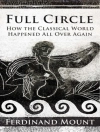Britain’s work camp systems have never before been studied in depth. Highly readable, and based on thorough archival research and the reminiscences of those involved, this fascinating book addresses the relations between work, masculinity, training and citizen service.
The book is a comprehensive study, from the labour colonies of late Victorian and Edwardian Britain to the government instructional centres of the 1930s. It covers therapeutic communities for alcoholics, epileptics, prostitutes and ‘mental defectives’, as well as alternative communities founded by socialists, anarchists and nationalists in the hope of building a new world. It explores residential training schemes for women, many of which sought to develop ‘soft bodies’ fit for domestic service, while more mainstream camps were preoccupied with ‘hardening’ male bodies through heavy labour.
Working men’s bodies will interest anyone specialising in modern British history, and those concerned with social policy, training policy, unemployment, and male identities.
Jadual kandungan
1. Colonising the land
2. ‘We work amongst the lowest stratum of life’: the early labour colonies
3. Labour colonies and public health
4. Alternative living in the English countryside: utopian colonies
5. ‘The landless man to the manless land’: labour colonies and the Empire
6. ‘Save our young people from a kind of dry rot’: compulsion and the Labour government, 1929–1931
7. Incremental growth: Instructional Centres under the National Government
8. ‘Light green uniforms, white apron and caps’: training unemployed women
9. Camps as social service and social movement
10. ‘Down with the Concentration Camps!’ Opposition and protest
Conclusion – Understanding work camps: memory and context
Index
Mengenai Pengarang
John Field is a Professor in the School of Education, University of Stirling, Scotland












